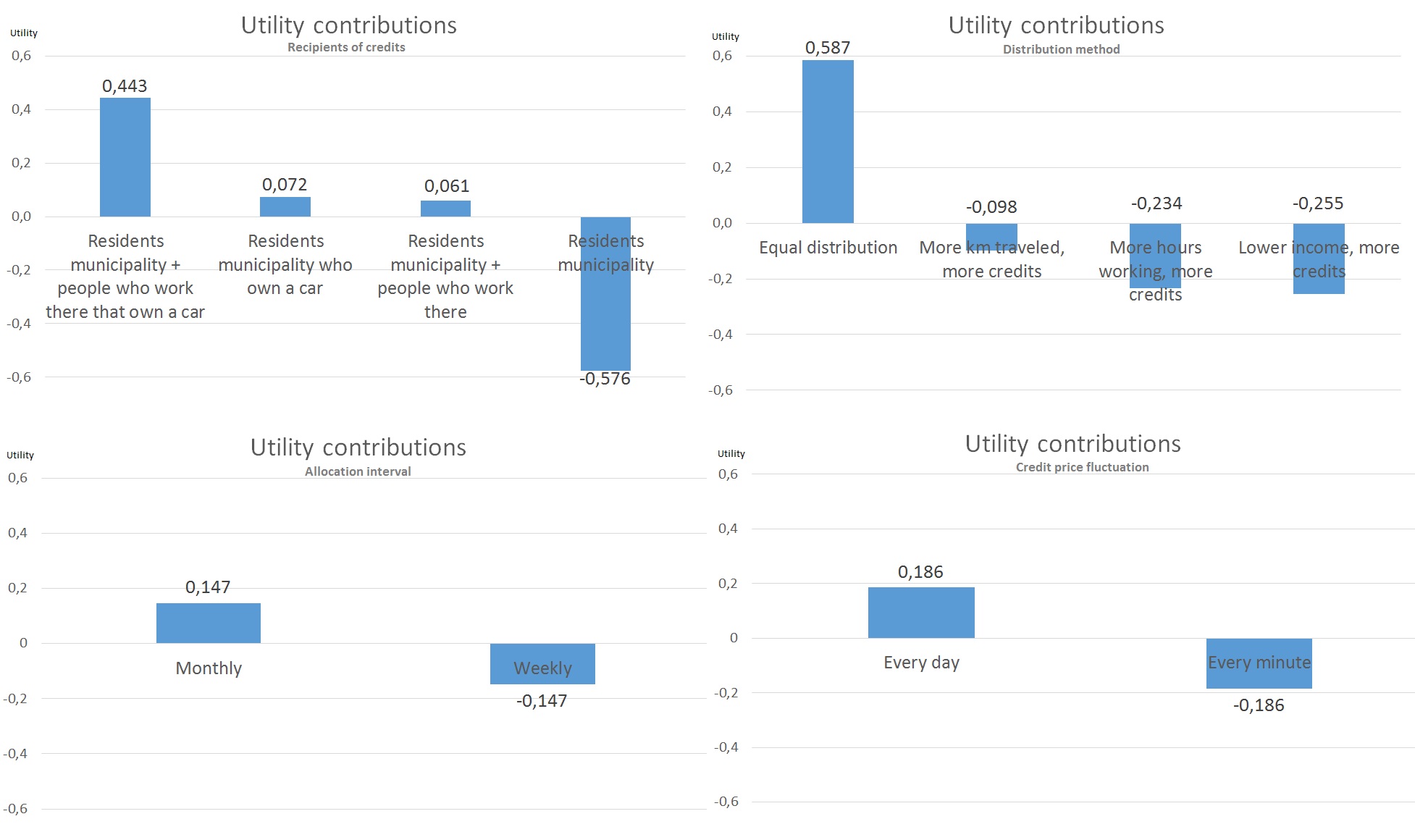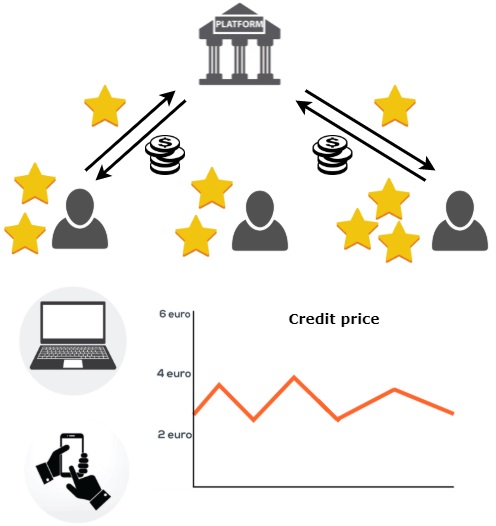Chris van Bergen
Faculty of Technology, Policy and Management
Public support for Tradable Peak Credits as an Instrument to reduce Congestion
Traffic jams have been a problem for decades and it is expected that this problem will keep growing in the coming years. For her Master’s thesis, Chris investigated to what extent this problem could be tackled with a measure that has only been suggested in academic literature and not yet applied in practice: tradable peak permits. Her aim was to arrive at practical recommendations for designing this pricing instrument.
Designing the stated choice experiment – a technique for eliciting individual preferences – was challenging, because the research was novel. Chris first held semi-structured interviews with experts in an iterative way, and was very well able to explain the resulting questionnaire to respondents. In the end, Chris actually examined two research questions, whereas each one would have been sufficient for a Master’s thesis. The first part of her study part investigated the public support for Tradable Peak Credits, and the second part dealt with the influence of introductions in stated choice experiments on the results of such an experiment.
Her thesis work greatly influenced her job choice, as she discovered that mobility issues are enormously challenging, interesting and relevant. Now a junior consultant at Revnext, she hopes to make a contribution to future mobility.
Chris excels both in qualitative and quantitative aspect of empirical research, which is rarely observed for Master thesis students. And she is not only is an excellent analyst, she is also able to translate her empirical results into keen practical policy recommendations.
Graduation committee - Dr. E.J.E. Molin, dr. G. de Vries, ir. L.D.M. Krabbenborg
In her thesis, Chris investigated the public support for TPC and how this support is influenced by the design of the TPC system and by other factors. To date, low public support has prevented the implementation of road pricing policies to reduce traffic congestion. Tradable Peak Credits (TPC) is a new instrument to reduce congestion. Credits to drive during peak hours are distributed among people, who can trade these credits among each other.
TPC is expected to have a higher public support than traditional road pricing. If this is the case, TPC might be a viable instrument to reduce traffic congestion. Her thesis offers policymakers important insights that are needed to make a trade-off between different measures to reduce traffic jams. Additionally, the thesis addresses an important methodological question: to what extent do variations in the way in which you explain TPC influence the outcomes of your experiment?



